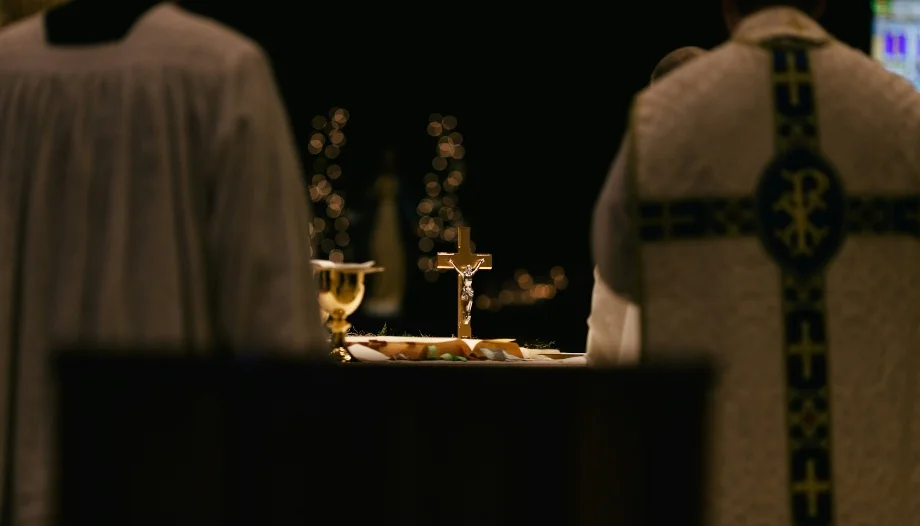Some time ago I was surprised to read some statements by Cardinal Walter Kasper in which he expressed his conviction that the book "From the Depths of Our Hearts", written by Cardinal Robert Sarah with Joseph Ratzinger Benedict XVI, already as Pope Emeritus, had frustrated an attempt, by a majority of those who had participated in the Synod on the Amazon, held between October 6 and 27, 2019, so that, at least in some territories of the Church as in the Amazon itself, married men, who are already permanent deacons or so-called "viri probati", could be ordained priests.
Cardinal Walter Kasper's surprising statements led me to read the aforementioned book which, in my opinion, apart from its exhortative and passionate orientation, contains good doctrine and theology on the ministerial priesthood; doctrine and theology that support the very ancient ecclesial norm, confirmed by the Second Vatican Council and post-conciliar magisterial documents, of requiring priests to "observe a prefect and perpetual continence for the Kingdom of Heaven" (c. 277,1 of the Code of Canon Law). 277,1 of the Code of Canon Law).
Cardinal Robert Sarah insists on not allowing oneself to be carried away, in this area, by "functionalism" or "efficiency". Indeed, the ministerial priesthood performs a "function," a "service" whose importance in the Church, as willed by her Founder, is of the first order, for it is the "function" or "service" of Christ the Head, High Priest, Shepherd and Spouse of his Church.
We insist today, with good reason, that the ministerial priesthood cannot be conceived or exercised as a temporal power, an honor or a form of "establishment" that, in the past, may have had a certain social recognition.
A service instituted by Christ
The ministerial priesthood is an ecclesial service and whoever exercises it must exercise it as a true and sincere servant of all. However, it is a "service" or "function" (ministry) that the Church does not create herself as an Institution in the world in order to be better organized and more effective in her mission of announcing the Gospel. No! The ministerial priesthood is the ministry that Christ himself institutes. It is the ministry of Christ Himself as Head, High Priest, Shepherd and Bridegroom to His Church. The ministerial priest "impersonates" Christ precisely in these functions and Christ was celibate and had no other spouse than his community, which needs the action of its Head and cannot be self-constructed or self-realized by itself. It is Christ himself who conferred this ministry on the Apostles and it is transmitted in the Church by a specific sacrament.
The ministerial priest acts immediately in the acts of his ministry "in persona Christi Capitis," in the person of Christ the Head, which implies that the ministerial priest is a living and free instrument through whom Christ himself works in his Church. This is evident in the exercise of the "tria munera", of the three functions proper to this ministry, which are inseparable from one another; in the exercise of Christ as Master of truth, in the identification with the Good Shepherd who gives his life for the sheep and in the administration of the sacraments, above all, in the Eucharist and in Penance, where only the ministerial priest can pronounce the words in the first person, which is that of Christ: "This is my Body", "This is the chalice of my Blood" or in the sacrament of Penance: "I absolve you from your sins..". Also in ritual formulas that sometimes go unnoticed, such as: "pray, brothers, that this sacrifice of mine and yours" where the "mine" is for Christ or "you may go in peace" instead of "we may go in peace".
All this in no way detracts from the sinful and fallible human condition of the minister. This living and immediate presence of Christ in his ministers should not be understood as if he were exempt from human weaknesses. He too acts in the name of the whole Church, which unites itself to the prayer and offering of its Head and only Savior.
For all these reasons, it is understood that the celibacy of ministerial priests is much more than a disciplinary norm. The praiseworthy desire that all Christian communities have frequent Eucharist and priestly service cannot lead us to an "efficiency" mentality, considering celibacy as a purely disciplinary norm, which can be changed without major problems, but to create Christian communities of living and authentic faith, praying with full confidence to the Lord of the harvest to send workers into his harvest (cf. Mt 9:38).







